-
Thirty years of failure on climate: How did it come to this?
It’s more than 50 years since scientists first came to understand that carbon dioxide and other greenhouse gas emissions from human activities could be drivers of a potentially catastrophic warming of the world’s climate.
-
2023’s costliest weather disasters reveal ‘double inequality’ of climate crisis
“There is a global postcode lottery that is stacked against the poor,” Christian Aid’s chief executive said on the publication of the charity’s annual list of the year’s costliest climate-driven disasters.
-
‘You burn with us’
We need a mass movement to ensure a just transition and prevent climate breakdown. But such contestations can go very wrong.
-
The Price of Water and the Ongoing Colonization of Nature: Australian Cases in Global Context
Competition over fresh, clean water supplies is leading corporations and their partners in government into situations that transform water from a useful common good to a scarce, exchangeable asset. This process of commodification and financialization is imbricated in an ongoing colonization of nature, one starkly illustrated in settler colonial contexts like Australia.
-
When economists shut off your water
Access to water in Nairobi is horribly unequal. The World Bank, Nairobi Water Company, and development economists exploited this unjust context to treat poor Kenyans like guinea pigs.
-
Cop28: Elite politics won’t save the planet
If you’re a monarch, president or oil industry big shot the floor is yours at Cop28—there’s little to no input from those that actually feel the effects of climate change, warns RICHARD HEBBERT
-
A scientist’s warning on how climate change is rooted in violence
The education system kills innate curiosity and hinders the development of scientific attitude and is thus conducive for the philosophy of othering. Even this lopsided knowledge is not available to all. Thus, people become oblivious to the universality of humankind and species’ interdependence.
-
COP28: Where fossil fuel industries go to gloat
Call it a drugs summit for narcotics distributors promoting clean-living; a convention for casino moguls promising to aid problem gamblers. The list of wicked analogies is endless.
-
Carbon capture’s publicly funded failure
Carbon, Capture, Utilization, and Storage (CCS or CCUS) has a 50-year history of failure.
-
The nuclear geopolitics of anthropogenic clouds
Among the various types of anthropogenic clouds, mushroom clouds that form in the sky after atomic bomb explosions are arguably the most spectacular.
-
Relying on carbon capture and storage could Unleash ‘carbon bomb’
“We need to cut through the smoke and mirrors of ‘abated’ fossil and keep our eyes fixed on the goal of 1.5°C,” said a co-author of a new analysis.
-
How colonial rule radically shifts historical responsibility for climate change
Historical responsibility for climate change is radically shifted when colonial rule is taken into account, Carbon Brief analysis reveals.
-
Despicable derailment of UN Climate negotiations
Capitalism is taking humanity to disaster with a tiny minority doing most of the damage.
-
COP28: The mirage that capitalism can solve its destruction
The COP28 summit taking place in Dubai, United Arab Emirates from 30 November to 12 December is a colossal illusion, a mirage in the desert.
-
IPCC rebellion
It’s 35 years since formation of the Intergovernmental Panel on Climate Change (IPCC) “to advance scientific knowledge about climate change caused by human activities.”
-
The dark side of SpaceX’s flight of innovation
While Elon Musk grabbed headlines again after Starship’s second test flight, his workers continue to toil under high stress and the lack of safety.
-
ExxonMobil’s land grab
In 2014/15, the most sinister and predatory oil corporation in the world, ExxonMobil-an avowed enemy of Venezuela-discovered oil in land and sea of the disputed territory.
-
German Constitutional Court rules climate change fund is unconstitutional—A signal for further social cuts
Germany’s Federal Constitutional Court’s ruling on the federal government’s Climate Change Fund is not a legal, but a political decision. It reduces the previously agreed budget by €60 billion in one fell swoop and is a signal for further social spending cuts.
-
Averting a rendezvous with disaster
‘Cultural environmentalism’ alone will not solve the climate crisis, as, couched in the language of passivity, it avoids the urgent need for planned and targeted action, says ZOLTAN ZIGEDY.
-
How the United States underdeveloped Somalia
On September 6, 2023, the United States military reportedly assisted the Somali government in an deadly counter-terrorism operation that killed five civilians.


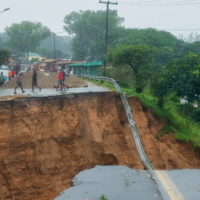


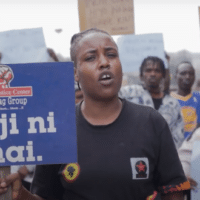


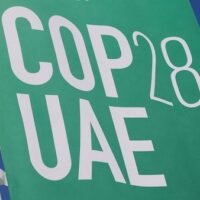
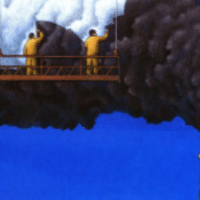





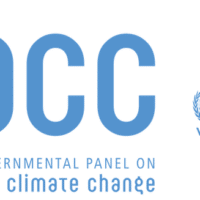


![The Federal Constitutional Court in Karlsruhe [Photo by Tobias Helfrich / CC BY-SA 3.0]](https://mronline.org/wp-content/uploads/2023/11/b79f29a7a55a104ef8703e914ae5878052ef6584-200x200.jpg)

